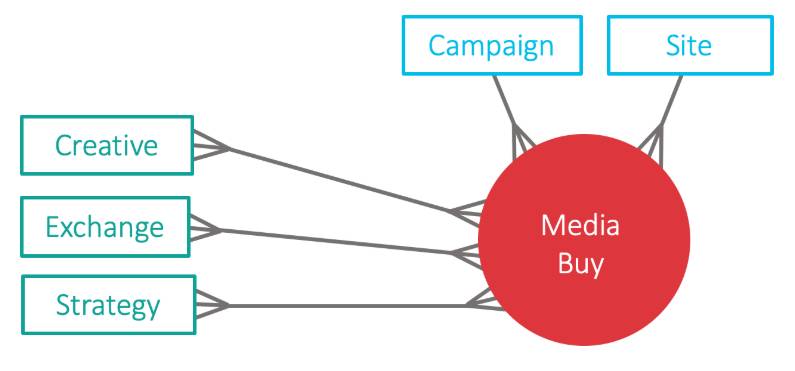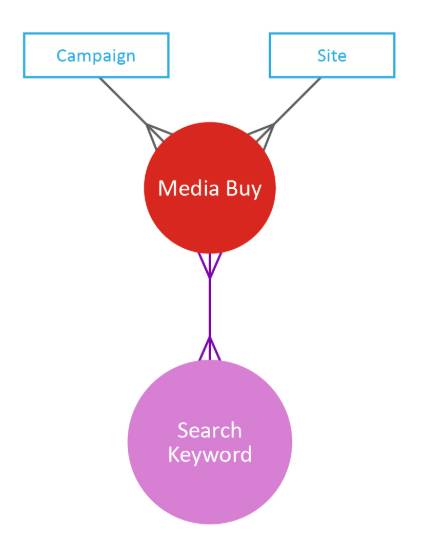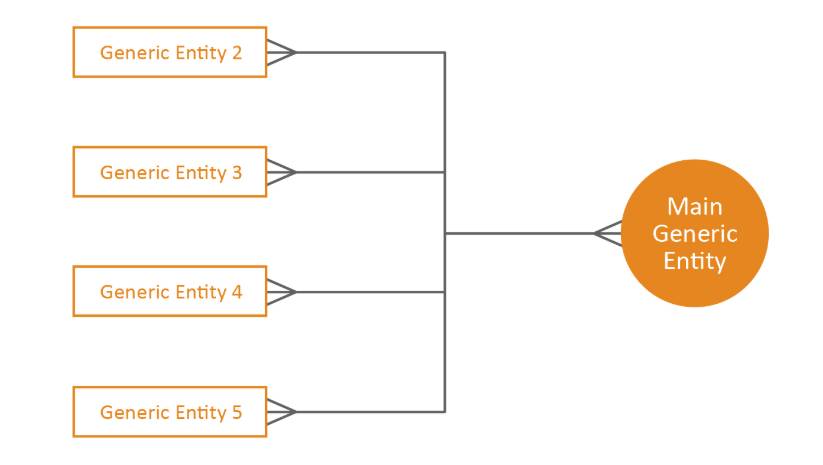Learn About Popular Data Stream Types
Learning Objectives
After completing this unit, you’ll be able to:
- Identify the ads data stream.
- Identify the conversion tag data stream.
- Identify the search keyword data stream.
As you learned in the previous unit, each data type has a dedicated data stream type. Therefore Marketing Cloud Intelligence has 19 data stream types available. In this unit, you learn about three of our most popular data stream types—ads, conversion tag, and search keyword—and the data model governing each of them.
The Ads Data Stream Type
The ads data stream is the data stream type we used as an example in the previous unit. In the world of digital marketing, the ads data stream type is where you can find the data for your display ads campaigns. This data stream type contains the delivery data that comes from these campaigns, for example, how many times an ad has been seen, clicked, or how much money it cost. The ads data stream type can be used with providers such as Facebook Ads, Google Ads, Twitter Ads, Bing Ads, and more.

The Conversion Tag Data Stream Type
The conversion tag data stream type contains data related to the various calls to action tied to your campaigns, also known as conversions. You can see what particular conversion tag prompted your audience to complete a call to action, and whether this happened after they viewed your ad or after they clicked it. This data stream type also includes data related to the monetary aspects of your conversions; for example, how much a conversion cost or how much revenue it brought in. This data stream type can be used with providers such as Facebook Ads, Google Ads, Google Display & Video 360, Twitter Ads, and more.

The Search Keyword Data Stream Type
The search keywords data stream type contains data related to ads displayed in search engine results whenever someone searches for the services or products using certain keywords offered by the advertiser. The data is associated with campaigns and is measured by impressions, clicks, and media cost, to name a few of the fields that make up its data set.
This type of advertising is known by numerous names, such as search advertising, paid search, search engine marketing (SEM), pay per click marketing, and more. The search keywords data stream type is suitable for providers such as Google Ads, Search Ads 360, and Bing Ads.

Marketing Cloud Intelligence also has a generic data stream type that is fully customizable for uploading data that doesn’t fall into any of the existing data models offered by the predefined data stream types. All of its entities are in a many-to-many relationship with one another, so they support almost any relationship that might exist in the source data.

Knowledge Check
Let’s see if you can correctly associate between data sources and data stream types that would be used to ingest data from these sources. This activity isn’t scored—it’s just an easy way to quiz yourself. Drag each data source from the left column, into the correct data stream type that would be used to ingest it, on the right. When you finish, click Submit to check your work. If you’d like to start over, click Reset.
Check out this video to get a better understanding of the data stream types presented in this unit and their data models in Marketing Cloud Intelligence.
This unit explained Marketing Cloud Intelligence’s three most popular data streams. Getting acquainted with them is a great way to begin to understand the power of Marketing Cloud Intelligence. In the next unit, learn more benefits of the Marketing Cloud Intelligence data model.
